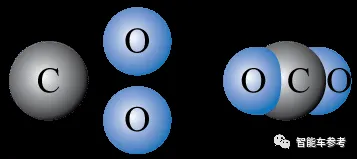Lithium metal can perfectly replace graphite as the anode material for lithium-ion batteries, thus enabling the latter to solve the problem of "poor range". Recently, this latest achievement of Associate Professor Feng Jinkui's group in Shandong University's School of Materials Science and Engineering was published in the top journal Nano Energy. The introduction of this technology, so that the lithium battery is regarded as "unsuitable for electric vehicle power" ushered in a turnaround hope.
Pure electric vehicles are a topic of focus in the automotive industry, and one of their core componentsli-ion batteryIs repeatedly pushed to the tip of the public opinion, the lithium battery performance and range of "criticism" is the biggest complaint. This stems from the lithium battery technology in recent years has not been a significant breakthrough. It is understood that the commercial battery anode is mainly a lower capacity graphite anode material, limiting the energy density and range of the battery. In contrast, lithium metal is a very ideal anode material for lithium batteries, which can solve the problem of energy density and range.
Feng Jinkui believes that to use lithium metal as the anode material for lithium-ion batteries, the main need to overcome two problems: safety and cycle life. The main problem plaguing lithium metal anode is lithium dendrite, in the cycling process, due to local polarization factors, making lithium metal surface growth lithium dendrite, when lithium dendrite grows to a certain extent, it may penetrate the diaphragm, triggering safety issues, in addition, if the lithium dendrite fracture will form "dead lithium", resulting in the loss of battery capacity, so the biggest obstacle to the application of lithium metal anode is the obstacle to the application of lithium metal anode. Therefore, lithium dendrite is the biggest obstacle to the application of lithium metal anode.
Associate Professor Jinkui Feng's group used vacuum distillation to remove low-boiling-point metal zinc from commercial brass to synthesize 3D porous copper, which was used as a collector for lithium metal anodes. Vacuum distillation is a method of obtaining a pure, high-boiling-point product by evaporating one or more components of a precursor. The method is environmentally friendly, low cost and easy to industrialize. The pore size and porosity of the prepared porous copper can be regulated by distillation time and temperature, and the resulting by-product zinc can be recycled. The porous copper, when used as a lithium metal anode collector, can inhibit the growth of lithium dendrites, thus improving the safety of the battery; it can also alleviate the volumetric expansion generated during the cycling process, so as to form a stable SEI membrane and electrode structure, and obtain good cycling and multiplication performance.
(Source: China Chemical and Physical Power Supply Industry Association)
[Zhongshun New Energy Marketing Department April 23, 2018 Responsibility: Xiao Xu]




